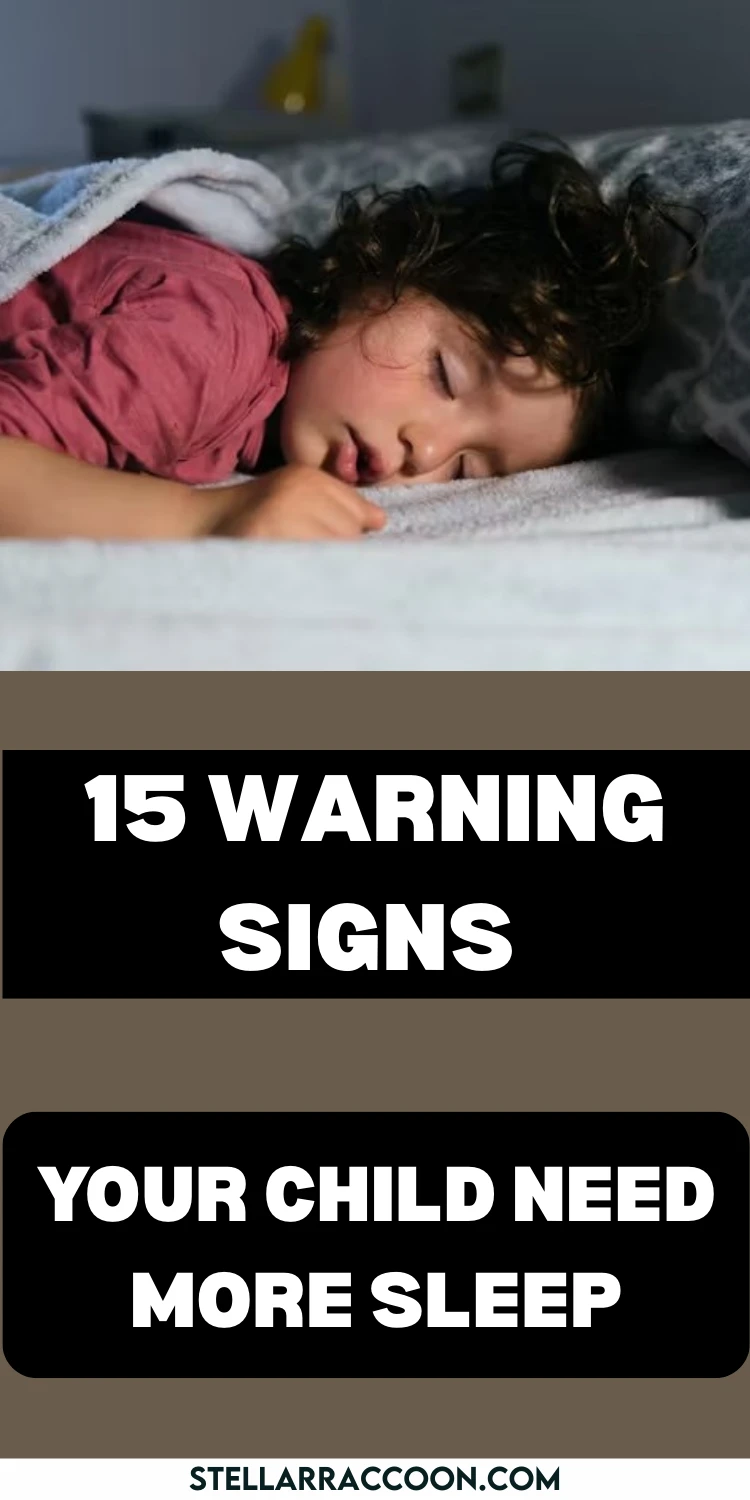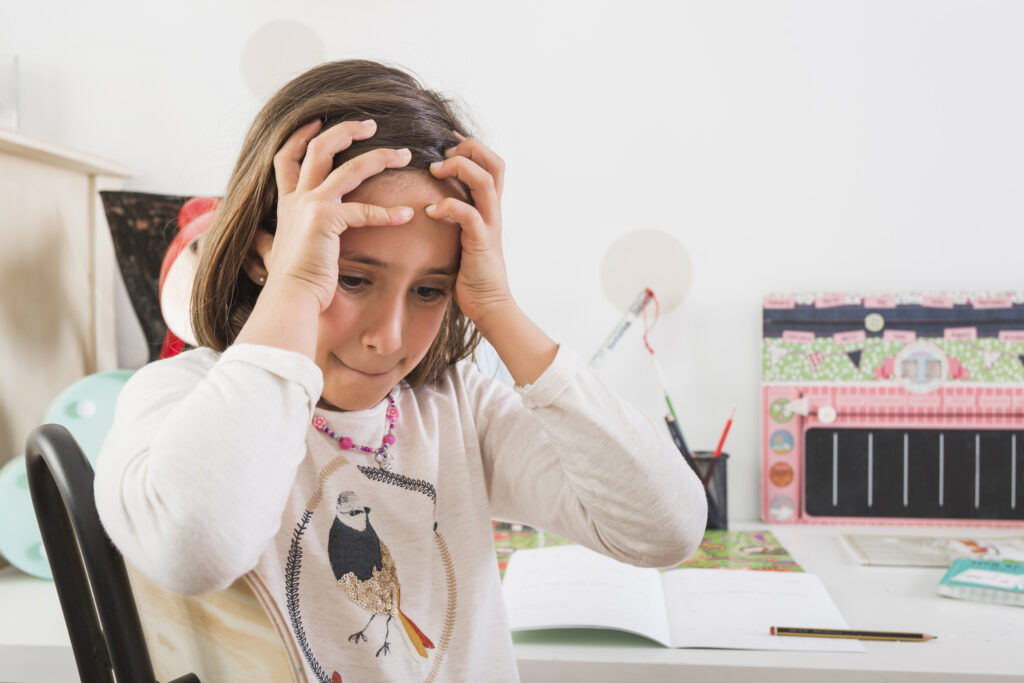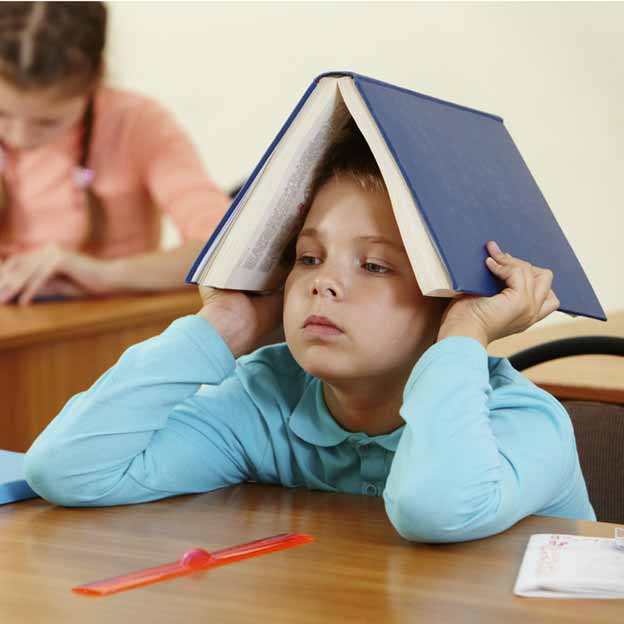When your 8-year-old throws daily tantrums over simple requests, your teenager can’t focus on homework for more than five minutes, or your preschooler becomes hyperactive and defiant after dinner, sleep deprivation might be the real culprit behind these exhausting moments.
The meltdowns, the forgetfulness, the emotional outbursts, and the inability to follow simple instructions all point to one overlooked solution.
Learning to spot the subtle difference between a genuinely tired child and a defiant one can completely transform your household’s peace, your child’s success at school, and your family’s overall happiness and well-being.
15 Warning Signs Your Child Needs More Sleep + How To Fix It Fast

1. Physical Exhaustion

Dark circles, frequent yawning, and sluggish movements reveal when children aren’t getting sufficient rest for proper physical recovery.
2. Emotional Problems

Increased irritability, mood swings, and crying over minor issues indicate sleep deprivation affects emotional stability and self-control mechanisms.
3. Cognitive Performance

Memory lapses, poor concentration, and difficulty processing information signal that inadequate sleep is impairing brain function and learning capacity.
4. Academic Achievement

Falling grades, incomplete homework, and teacher reports about classroom attention problems often correlate with insufficient nighttime rest periods.
5. Social Interaction Difficulties

Withdrawal from friends, aggressive behavior, and trouble cooperating during group activities demonstrate how tiredness impacts interpersonal relationships.
6. Appetite and Eating Changes

Unusual food cravings, loss of appetite, or irregular eating patterns can indicate sleep deprivation affecting metabolic and hormonal balance.
7. Hyperactivity Despite

Paradoxical restlessness and inability to settle down often masks exhaustion, as overtired children become overstimulated rather than calm.
8. Frequent Illness

Recurring colds, infections, or slow recovery times suggest compromised immune function due to inadequate restorative sleep.
9. Morning Wake-Up Struggles

Extreme difficulty getting out of bed, requiring multiple wake-up attempts, or appearing disoriented upon waking indicates insufficient sleep duration.
10. Behavioral Patterns

Mother scolding her daughter in living room at home.Return to earlier developmental behaviors like tantrums, clinginess, or bedwetting may signal that sleep deprivation is affecting maturity.
11. Growth & Development Concerns

Slower physical growth, delayed milestones, or regression in motor skills can result from insufficient growth hormone production during deep sleep phase.
12. Technology Dependency Issues

Excessive screen time seeking, difficulty disconnecting from devices, or using electronics as stimulation may indicate attempts to combat underlying fatigue.
13. Sleep Resistance Paradox

Fighting bedtime routines, claiming not to be tired, or second-wind energy bursts often occur when children are actually overtired and overstimulated.
14. Attention Deficit Symptoms

Inability to focus on tasks, constant distraction, and fidgeting behavior often mimic ADHD but may actually stem from chronic sleep deficiency.
15. Increased Accident Proneness

More frequent falls, bumps, or injuries due to impaired coordination and slower reaction times caused by sleep-deprived nervous system function
Could Your Child Benefit From Better Sleep
Your child’s sleep struggles are affecting the entire family, and you’re desperately searching for solutions that actually work. Right now, bedtime feels like a battlefield – tantrums, endless requests for water, and multiple wake-ups throughout the night leave everyone exhausted and cranky.
You’ve tried everything from blackout curtains to white noise machines, but nothing seems to stick. Meanwhile, you’re watching your little one struggle with mood swings, difficulty concentrating, and constant fatigue during the day.
Better sleep isn’t just about getting through the night – it’s about unlocking your child’s full potential for learning, growth, and emotional regulation.
How to Fix Sleep Problems
1. Set Consistent Bedtimes
- Establish age-appropriate sleep schedules (toddlers need 11-14 hours, school-age kids need 9-11 hours, teens need 8-10 hours)
- Keep the same bedtime and wake time, even on weekends
2. Create a Sleep-Friendly Environment:
- Remove screens 1-2 hours before bed (blue light disrupts melatonin)
- Keep bedrooms cool, dark, and quiet
- Use blackout curtains or white noise machines if needed
3. Develop Calming Routines:
- Start wind-down activities 30-60 minutes before bedtime
- Include baths, reading, or gentle stretching
- Avoid stimulating activities like rough play or exciting movies
4. Address Sleep Disruptors:
- Limit caffeine (especially for teens)
- Ensure regular exercise, but not close to bedtime
- Check for underlying issues like sleep apnea or anxiety
FAQS
1. How much sleep does my child actually need by age?
School-age children need 9-11 hours while teenagers require 8-10 hours of sleep per night.
2. Can behavioral problems really be caused by lack of sleep?
Sleep deprivation impairs impulse control, causing aggression and attention issues that improve with adequate rest.
3. When should I consult a pediatrician about sleep issues?
Consult a doctor if warning signs persist despite proper sleep routines or if snoring occurs regularly.


